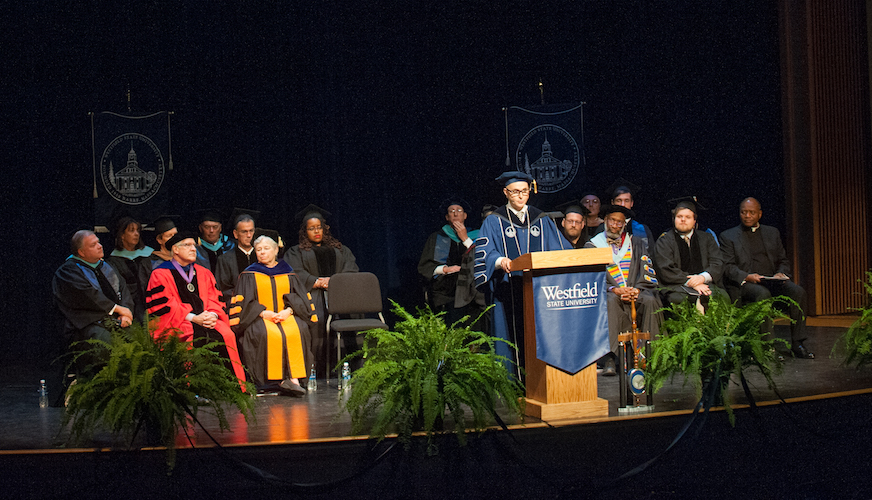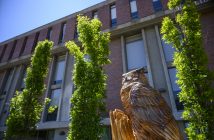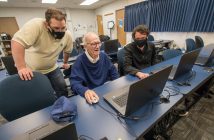The Westfield State Experience is an initiative being introduced to the University with the intention of engaging all students to reach beyond what they perceive as their potential.
This four-year program announced by President Ramon S. Torrecilha, Ph.D., in his “100 Days Report” last year, plans to “increase retention and graduation rates, reduce the achievement gap, provide civic engagement opportunities, and prepare our graduates for the workforce,” said Michael Filas, Ph.D., interim associate dean, charged with rolling out the Westfield State Experience.
The program begins with first-year only classes, which the University has been offering in fall for the last four years, and which will soon include a first-year only core courses, for all first-year students in the spring as well.
Reflection is the focus of the second year, in which students will have options outside the classroom, including civic engagement opportunities. The third year will include high-impact practices such as undergraduate research and creative activities, service learning, community based and global learning, and internships. The last mile brings capstone courses and practical projects that will prepare students for graduate school or the workforce.
“At the most immediate level, the Westfield State Experience will help our University retain its students, and by deepening student involvement, we expect to increase graduation rates as well. Westfield State graduates will leave our institution with a broader sense of themselves in a global community, and their college experience will go far deeper than just coursework,” says Dr. Filas.
This University-wide initiative will create changes in the academic departments as they help develop first-year only courses, more ways to engage the student body in high-impact practices, modifications of existing courses, and developments of new ones. In the next few years, directors for the Center for Undergraduate Research and Creative Work and civic engagement will be brought on board.
In the words of Dr. Torrecilha, “It is my hope that students complete their undergraduate studies as more well-rounded, socially responsible citizens, ready to positively impact the communities in which they will live and work.”




